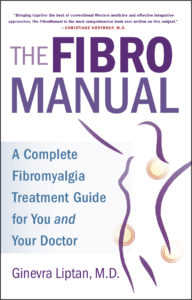Sex. A single syllable word that can evoke an array of emotions ranging from excitement to discontent or even hate. Three single letters coming together to form a word that has an unrelenting force strong enough to unite or destroy a relationship with virtually no assistance. The very word itself can stand on its own or be dissected and discussed for hours with varying conclusions as to what it means. What does it mean? Even that question can’t be answered without a debate or argument from differing perspectives.

Disclosure: I get commissions for purchases made through links in this post, but these are products I recommend and have verified and/or used.
Fibromyalgia and Sex: The Painful Truth
How can an act between two people that has been around since the beginning of time have such an effect on the way we think, feel, and react to each other?
Simply put, why does the word ‘sex’ affect our emotions in different ways?
For many, sex is simply a pleasurable activity to pursue because of the feelings it arouses and, hopefully, to achieve orgasm. Surprisingly though, only 75% of men reach orgasm during sex and a staggeringly low 29% of women reach orgasm (“10 Most Surprising Sex Statistics,” n.d.). Even if orgasm isn’t achieved, however, this group of people do it because it feels good.
Often, significant others express their love for each other through sex because words can put restraints or boundaries on those feelings. Being intimate with a partner provides a way to connect, share, and grow together as a couple. It can be engaging, provocative, and alluring all at once. It’s no surprise sex is appealing to a large percentage of the population. In fact, the average man thinks about sex 19 times a day and the average woman thinks about sex 10 times a day (“Health Myth: Do Men Really Think About Sex Every 7 Seconds? | GQ,” n.d.).
Just as some are attracted and excited by the thought of sex, there are some that are turned off by it. Various reasons can cause these negative associations and, for those living with fibromyalgia the very mention of the word can stir up feelings of pain, discomfort, anger, or other negative thoughts. Why?

Why is sex painful for a fibro body?
Painful Touch
Sex can be a pain – literally – for a person living with fibromyalgia. Allodynia is common when dealing with fibromyalgia: when a person experiences pain from something that shouldn’t normally cause pain such as clothes, bedsheets or even air moving across the skin. Living with a sensory sensitivity causes a touch from a person to be painful no matter how gentle or caressing it’s intended to be. Allodynia prevents a person from being too close to another person making it even more difficult to have a desire for intimacy.
Pain on the Brain
No matter where pain is felt on your body, it is transmitted from the nerves to the spinal cord which is then carried to your brain. Your brain then registers the pain and causes the body to react accordingly to the pain messages received. This can be seen by quickly jerking a hand from a heat source, yelling out in pain when you stub your toe, or crying when your feelings are hurt.
With a fibro body, the sensitivity of the nerves is turned up, causing them to continuously feel pain and sending those pain signals up to the brain. The brain, in turn, concentrates on that perceived pain and coordinates the body to react to it. Since the brain is the most sensitive sex organ in the body, it makes it hard to focus on sex if our brain is constantly focused on pain.

Loss of Libido
If the negative effects of fibromyalgia on our ability to enjoy sex weren’t enough, it seems like a cruel joke that the treatment could make it even worse! Currently, there are three prescribed medications approved by the Food and Drug Administration to treat fibromyalgia: Lyrica, Cymbalta, and Savella. Antidepressants, pain relievers, muscle relaxers, antiseizure medication, and benzodiazepines have been used to ease fibromyalgia symptoms, but they are not specifically approved by the FDA for fibromyalgia.
The effectiveness of the medications as well as their side effects vary from person to person, but one of the most common side effect is the loss of libido. The reason a person’s libido is affected is because of the medicine’s effect on the production of brain chemicals. To relieve fibromyalgia symptoms, certain chemicals must be raised, in turn, lowering libido. Some of your symptoms may be relieved, but the tradeoff is your desire to have sex decreases or goes away altogether.

Muscle Pain and Stiffness
One of the most common symptoms of fibromyalgia is muscle stiffness, tenderness, and pain. Dr. Ginevra Liptan, founder of The Frida Center for Fibromyalgia located in the United States, states in her book, The FibroManual: A Complete Treatment Guide for You and Your Doctor, that the fibromyalgia brain is stuck in a stress response (Liptan, 2016, p. 20). This stress response keeps the body in a continuous state of a ‘fight or flight’ status. The ‘fight or flight’ response has our brain and sympathetic nervous system thinking it’s under attack triggering many reactions in our bodies to happen or to prevent them from happening. One of the reactions that stays on is the tension of our muscles.
Constantly tensed muscles can leave a person feeling fatigued and stiff throughout the entire body. Sex is an active exercise that requires flexibility and the use of various muscle groups. The muscle pain and stiffness can prevent a person from enjoying sex or being able to move with ease and free of pain. The results of an intimate session in the days following sex is often an increase in symptoms, or flares.
Difficulty with Sexual Performance
All the reasons listed up to this point tell why people living with fibromyalgia have little to no desire to be intimate with another person, and will, have an impact on their sexual performance. A person can feel pressure to have sex from their partner, although many times that pressure is unintentional. Thinking about pleasing and not disappointing the other person on top of struggling with the pain of having intercourse during and the days following can impact sexual performance. It’s natural to have these feelings, and they shouldn’t discourage someone living with fibromyalgia, or his/her partner, from further attempts at enjoying sex.
What are the health benefits of sex?
Even though sex may cause you or your partner pain, there are reasons you should consider having a healthy sex life. And, yes, there are ways to have a sex life and ways to improve it such as eating hormone balance food, but let’s discuss why it’s important.
Strengthens Your Relationship
As stated in the introduction, sex is a means in which many couples can express their affection for one another. When words fall short of that expression of love, we turn to intimacy and the closeness it can bring. In many instances, sex takes the relationship to a new level of connection and understanding. Communication lines open and couples can better receive what their partner’s verbal and nonverbal cues. These benefits remain even after the sex is over.
Strengthens Your Body
Yes, you read that correctly. Sex is an exercise, and like all exercises you burn calories while doing it. Pun not intended. According to research done by the University of Montreal provided by Men’s Health, men burn 100 calories for an average sex session of 25 minutes while women burn 69 calories (“Sex Workout,” n.d.). And the longer the session, the more calories burned. Having sex also elevates your heart rate which keeps estrogen and testosterone levels in balance. Done regularly, it will decrease chances of heart disease and osteoporosis.
Eases Pain
Endorphins are the body’s natural painkillers that decrease and increase a body’s overall well-being. These feel-good brain chemicals are released through various activities such as exercising and – yep, you got it – sex. Once endorphins are released to the pain receptors in the brain and spinal cord, they block pain signal transmissions. This lowers the perceived amount of pain for a given stimulus, and can prevent pain altogether. This is especially beneficial for someone living with fibromyalgia.
Orgasms can also relieve pain. When a body reaches its moment of climax, it releases a hormone called oxytocin which not only eases pain, but also lowers blood pressure, improves digestion, and makes us happy. Science has proven it – orgasms make a person happy!

Improves Your Sleep
In addition to the release of oxytocin, an orgasm also releases hormones called prolactin and vasopressin which are responsible for feelings of relaxation and sleepiness. With multiple hormones being released to relax the body, it’s no wonder we have the need to fall asleep after a good romp session.
Reduces Stress
Having a healthy sex life can help lower stress and improve overall well-being. Aside from the previously mentioned hormones that aid in lowering stress and improving relaxation, the physical closeness between partners during sex can also lower stress and anxiety. The welcome touching and caressing from your partner can release the body’s natural feel-good hormones which redirects your focus away from negativity and stress. This boosts self-esteem and can make a person happier.
Ways to improve sex
Even if sex is a painful experience for you, whether physically or emotionally, there are ways to make it better. There are also techniques to create a sex life if one is lacking. Sex can become a pleasurable experience that both partners look forward to.
Please join us in next month’s issue as we discuss the ways to turn painful sex into pleasurable sex in Fibromyalgia and Sex: Part 2: Turning the Pain into Pleasure.
This article first appeared in The Fibromyalgia Magazine, April 2017. Get the digital copy of the magazine from Pocketmags.
Fibro Live: Fibromyalgia and Sex
Pin It

Related Articles






I have had these probkems and my boyfriend quit making love to me. Then he has sex with our roomate, tells me she’s pregnant and breaks up with me. Now i hace been heart broken and too afraid to be in a relationship anymore. Thank you for reading. Laura
I’m so sorry you experienced that, Laura!
Laura I’m sorry you went through that but there is someone worthy of you out there. He was just not it. Shame on them both. Being widowed at 35 due to an accidental death, I know that afraid feeling all too well. It took time but I decided to try it again and after many years I am happily remarried to a man who helps my cope with fibro and we is worthy and I never thought it could happen. It did and it will happen for you too!
Hi Brandy. So glad that there are a blog and site where you can read about fibro. Seeing that this is quite a new and unfamiliar illness dr struggle to identify. I am living in South Africa. My wife was diagnose for fibro 4 years ago. Believe me if I tell you that I am still struggling to come eith terms with it.
Is there any place or group in support of the partner of a person that is struggling with it. Reason I ask is that we concentrate so much on the patient that we forget the other party as well. Seeing that this does effect both parties and this has an influence and effect on both.
I don’t know if there are spouses esspecially husbands that are effected or struggle to come with terms. Sure as hell I still do and sonetime dont want to accept the fact that this is a life changer and I must live with it. And if my wife is not healed by Jesus Himself then I have to live with it. And this makes me sometimes upset dis organised furious ext. I feel sometime life is just unfare. Maybe we must start a blog with fibropartner. But in support of this not to de motivate a person but to boost a person in support of his or her suffering partner.
But I have picked up, maybe I am wrong but the most people suffer from fibro is women.
Hear from you soon.
Blessings
John
Hello John, not to defer from Bandi but my partner Pete has a small support group as he’s been with me or the 13 years of my diagnosis and struggle with fibromyalgia. If its OK with Brandi and if you want to I could pass his detail through to you. Many thanks Lynn U.K.
Thanks for the help, Lynn!
Pingback: How to Push Past Pain to Produce Passion - Leaving a Legacy
Pingback: Sex: The Painful Truth – fitness and Health
Pingback: How to Push Past Pain to Produce Passion - Mandy and Michele